Knox Heritage has released its 2025 Fragile & Fading list to identify historically significant structures in need of conservation and restoration strategies. The preservation organization releases the annual list to create awareness and strengthen community support to save storied structures and prevent iconic history from being lost forever.
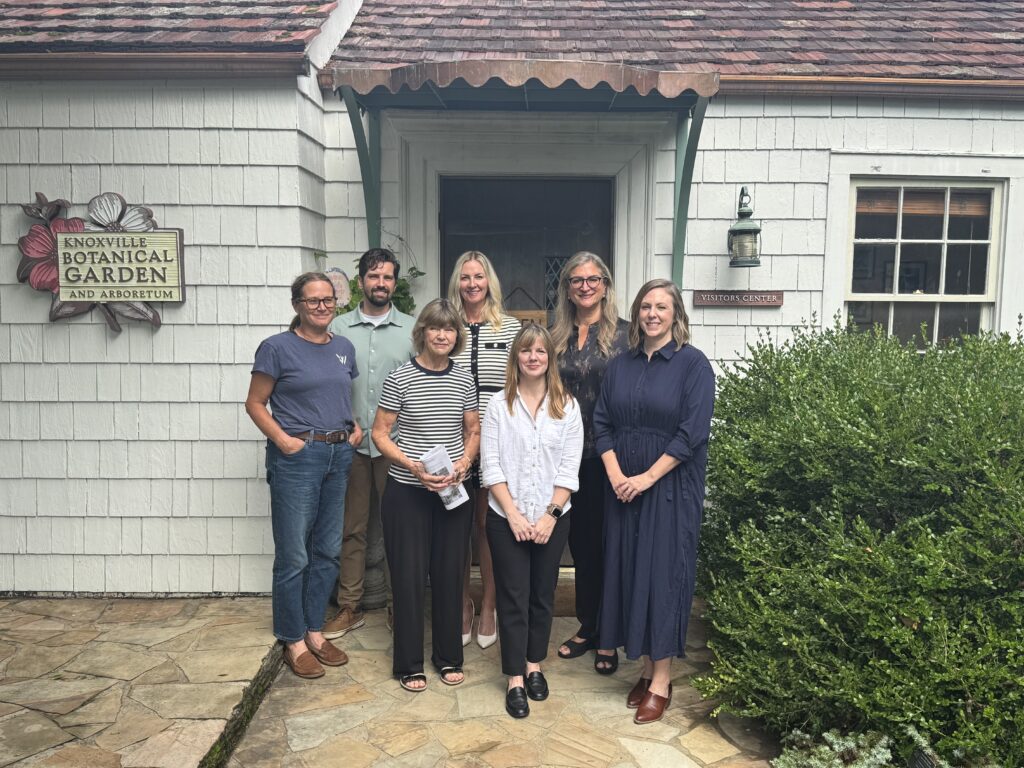
The 2025 list includes properties in various states of need, from the Lord Lindsey in downtown Knoxville to the Knott-York House on Middlebrook Pike to the iconic JFG signs.
However, this year’s list also celebrates progress. Howell House, located at 2743 Wimpole Ave., was in serious disrepair from water intrusion and other aging issues when the property transitioned to the Knoxville Botanical Garden and Arboretum. The mid-19th century building was added to the National Register of Historic Places in 2022. Since then, Knox Heritage and Knoxville Botanical Garden have collaborated on preservation efforts, securing funding for essential repairs that include restoring the original red tile roof and cedar shake siding. The foundation has been stabilized, and replica copper gutters and awnings have been installed.
“We want to celebrate the amazing things that can happen when we work together with a shared goal,” Knox Heritage Executive Director Christine Cloninger said. “While additional funds are still needed for restoration efforts at Howell House, the important work to prevent further water intrusion and damage has been completed, saving this historic property from ruin, all thanks to collaboration and community support.”
Howell House was originally constructed in 1929 as a home connected to the Howell family nursery. Now it serves as an event venue at Knoxville Botanical Garden and houses restrooms, a visitor center store and staff offices.
“Knox Heritage has been instrumental in shining a light on the Howell House, from hosting a Summer Supper there in 2024, to including the structure on last year’s Fragile & Fading list,” said Sharon Moore, executive director of the Knoxville Botanical Garden and Arboretum. “We also received a $5,000 Community Preservation Grant from Knox Heritage. While additional funds are needed to restore iconic ironwork, a Jim Thompson mural and historic windows and doors, we are proud of the work that has been completed.”
Knox Heritage provides support and resources for property owners and professionals through historic research, federal historic tax credit consulting, and evaluations and nominations for the National Register of Historic Places. The organization also awards community preservation grants and provides a directory of qualified craftspeople, artists and vendors for preservation work.
Through those collaborative efforts and other advocacy, Knox Heritage has seen numerous successes with previously listed Fragile & Fading properties. Those include South High School, Knoxville High School, Oakwood Elementary School, the Eugenia Williams House, the Lloyd Branson House, the 500 Block of Gay Street and Giffin School, which remains on the list, but restoration is moving forward to transform the school into a workforce housing development.
Knox Heritage is celebrating progress but acknowledges work remains to be done. The 2025 Fragile & Fading list spotlights four categories of priority – Fading Fast, Still Fragile, Moving Forward and Ones to Watch, a new category this year.
Fading Fast
- The Knott-York House – 1415 Third Creek Road

Situated on the median strip of Middlebrook Pike, the two-story brick Knott-York House was constructed around 1845 for Abingdon, Virginia, native Andrew Knott. However, the landscape around the house has shifted over time from rural and agricultural to industrial and commercial, creating a challenging environment for the preservation of this house, which remained in the same family for more than 180 years before its sale last March.
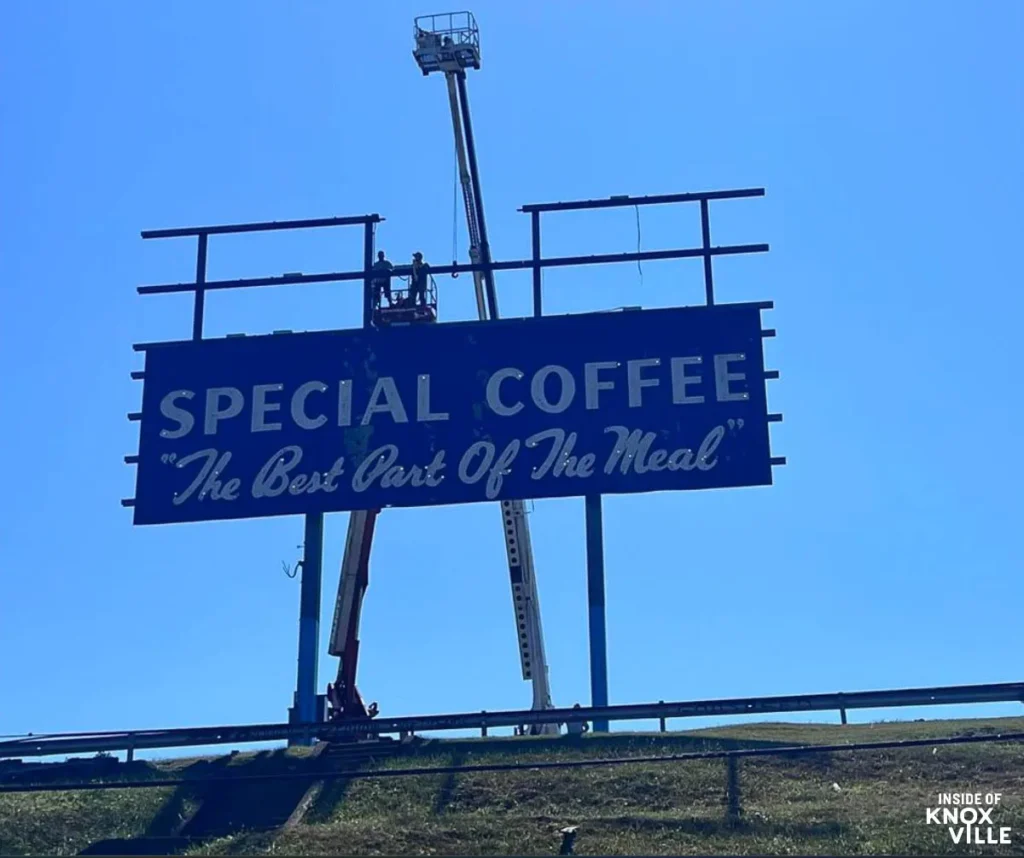
- JFG Signs – 200 W. Jackson Ave., and former Gay Street Bridge location.
JFG Coffee Company was founded in Morristown, Tennessee in 1882, and moved its roasting operations to Knoxville in 1924. Two of the company’s iconic neon signs are in peril and in need of major preservation efforts. One of the signs is in storage with no immediate plans for reinstallation.
- Paul Howard House – 2921 N. Broadway
This elegant 1910 Craftsman-style house has been home to two City Council members, a Knox County Trustee and a Knoxville City Manager. For over 60 years it was owned by the Howard family, owners of a prosperous plumbing supplies company. There was a public outcry in 2015 when a developer planned to demolish the property, and eventually the home was purchased by a local family with plans to renovate. Knox Heritage seeks to work with the owner on potential preservation solutions.
- Lord Lindsey – 615 W. Hill Ave.
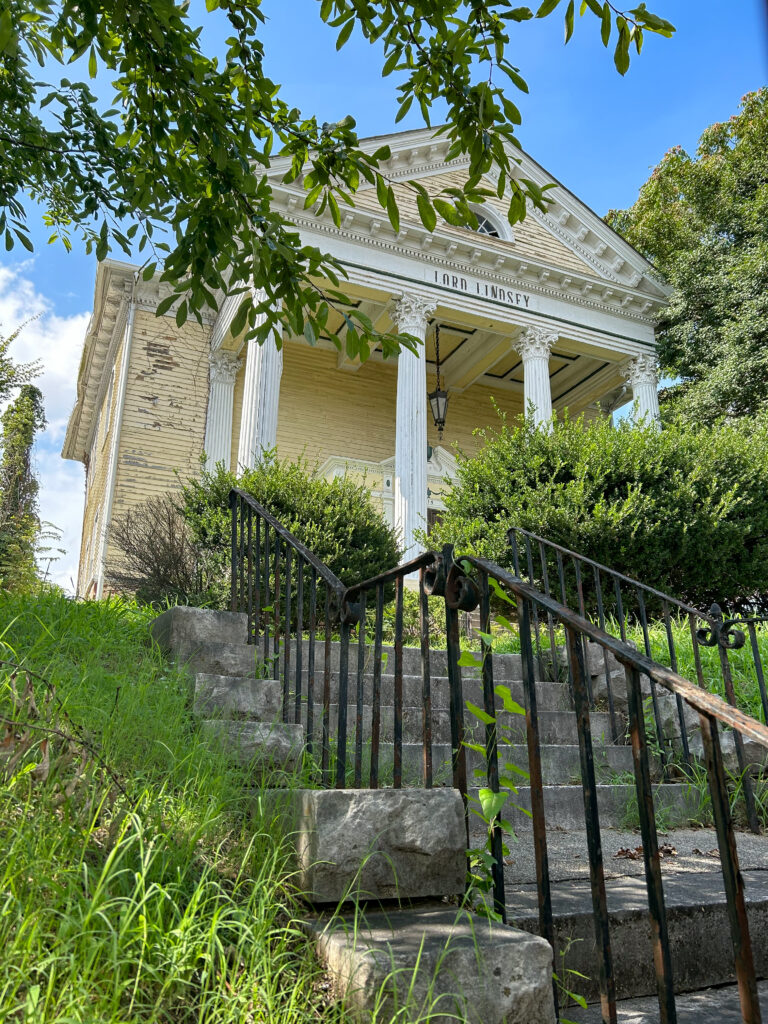
Originally built as a private residence in 1901, the structure also has been a church, restaurant and event center. Empty and underutilized, Knox Heritage seeks to lead efforts to preserve the landmark structure, which is eligible for inclusion on the National Register of Historic Places.
Still Fragile
- West View Cemetery District – Keith Avenue
Located in the West View Neighborhood, the district is a group of three abandoned Black cemeteries established in 1898, 1915 and 1922. While volunteers with the West View Community Action Group have worked to maintain the site, help is needed to secure in perpetuity the historical and cultural significance of the cemeteries.
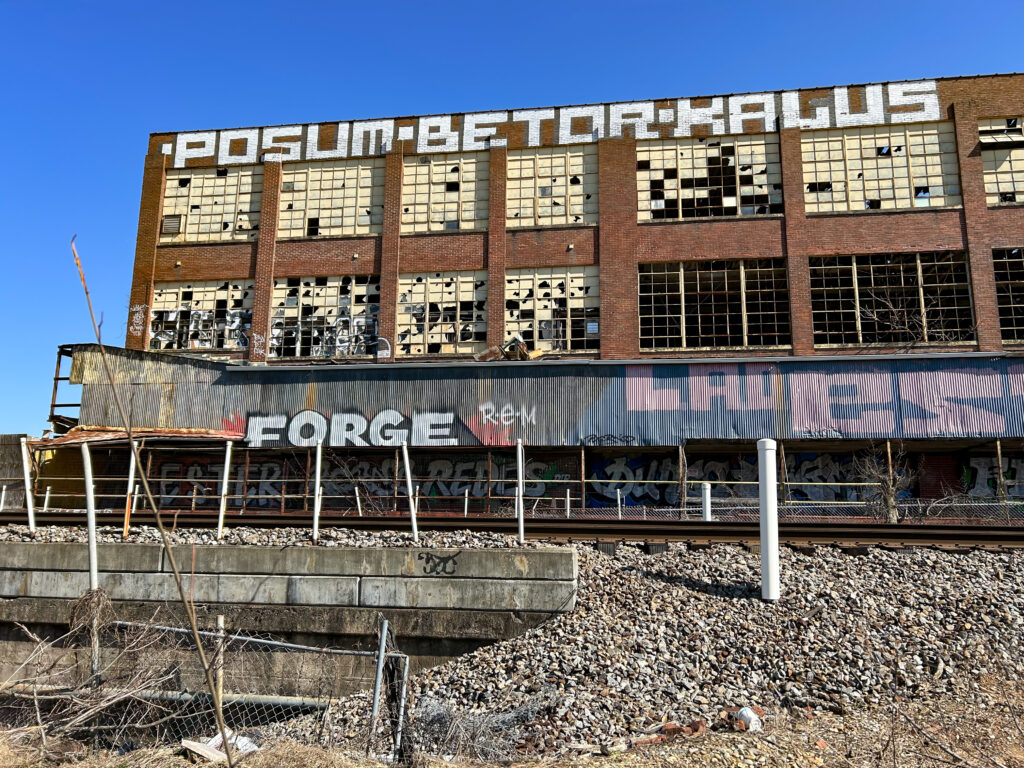
- Standard Knitting Mill – 1400 Washington Ave.
This circa 1945 building is the only remaining structure associated with Standard Knitting Mill, which once produced over a million garments a week. The current building footprint still has more than 400,000 square feet, and Knox Heritage wants to see the site preserved and redeveloped.
- Knoxville College – 901 Knoxville College Drive
Founded in 1875, the campus was the first Black college in East Tennessee and hosted prominent figures such as Frederick Douglass, Booker T. Washington, W.E.B. DuBois and Dr. Martin Luther King Jr. The buildings, vacant and in disrepair, deserve to be restored and used again.
Moving Forward
- Howell House at Knoxville Botanical Garden and Arboretum – 2743 Wimpole Ave.
The Howell House is a key part of the Knoxville Botanical Garden and Arboretum’s efforts to preserve its heritage while serving the community. As a crucial venue for events, staff offices and public restrooms, Howell House is in need of further funds to restore iconic ironwork, rehabilitate windows and doors, and upgrade electrical and plumbing systems.
- Giffin School – 1834 Beech St.
Located in the South Haven neighborhood, Giffin School was named for Andy Giffin, who donated the land for the original building, which was designed by Barber & McMurry and completed in 1920. Damaged by recent neglect that has now been undone, a new development called Historic Giffin Square will provide residential units to help address the area’s growing need for affordable housing.
Ones To Watch
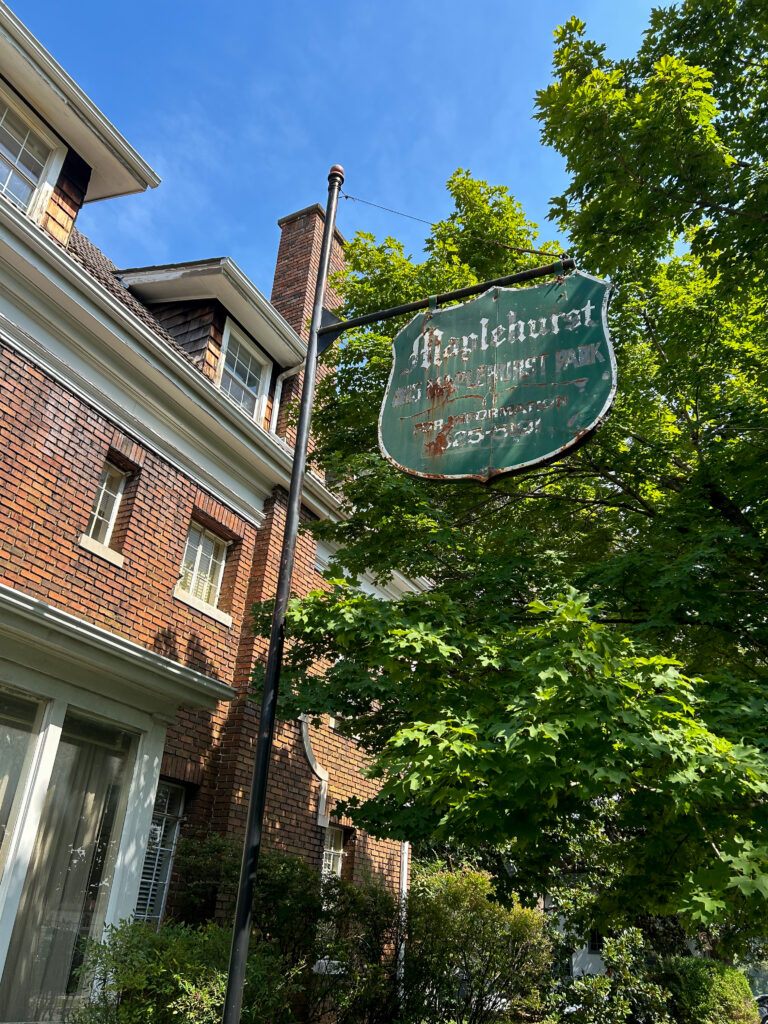
- Maplehurst Park – 814 W. Hill Ave.
Originally built around 1871, the property was later named Maplehurst for the maple trees on the grounds. In 1912, a developer subdivided the land into 16 lots, establishing Maplehurst Park, and cultivating a neighborhood of Tudor, Craftsman, Mission and Spanish Colonial Revival buildings. The University of Tennessee has released plans to explore the potential use of the site to create an innovation district. The University Financing Foundation Inc, (TUFF) is purchasing Maplehurst Park Apartments and will operate and manage the 199-unit property while the University of Tennessee engages in a visioning process for the 5.6-acre site. The historic section of the site is eligible for the National Register of Historic Places. Knox Heritage is in communication with UT and TUFF, and conversations will be ongoing.
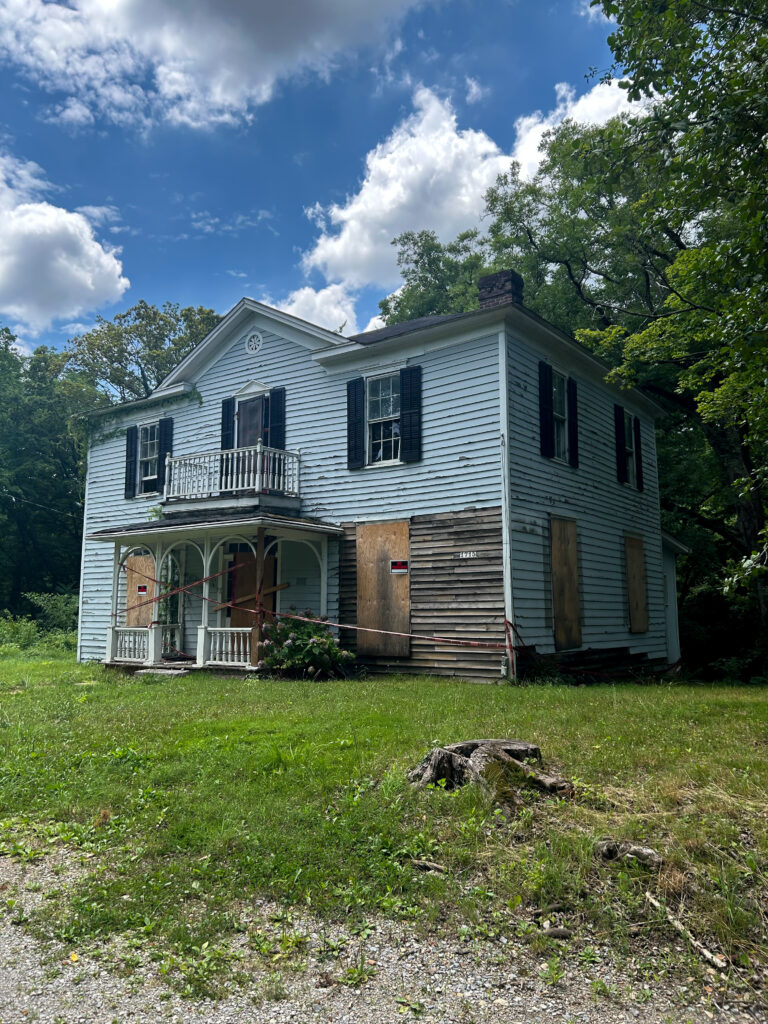
- The Alfred Buffat House/The Maples – 1717 Loves Creek Road
Built in 1867 by French-Swiss immigrant Alfred Buffat, The Maples stands as one of the last remaining 19th-century homestead complexes in northeast Knoxville. The City of Knoxville awarded a grant in 2015 to support foundational and structural repairs, but concern began to grow among residents when the property was unexpectedly listed for sale in 2024. The owner is now exploring redevelopment options that would comply with zoning and environmental regulations while still aiming to make the historic structure viable.
Knox Heritage offers multiple ways to get involved, including donations, membership, special events, volunteering, sponsorship and planned giving. Information about joining preservation efforts is available at knoxheritage.org/support.
ABOUT KNOX HERITAGE
Knox Heritage is a community of preservationists focused on advocacy, education, investment and engagement. The nonprofit is passionate about Knoxville’s heritage and serves as guardians to the spaces and places that make Knoxville such a dynamic and thriving place to live, work and visit. Knox Heritage’s mission is to protect Knoxville’s unique character for future generations by preserving, restoring and transforming historically significant structures and places. Knox Heritage commemorated its 50th anniversary in 2024 by launching its Community Preservation Grants program and has since awarded more than $80,000 to support small-scale preservation projects in our region. The organization awards grants to save historic signs, offer planning, surveys and historic designations, and support exterior rehab, restoration, and repairs. Learn more at knoxheritage.org.



